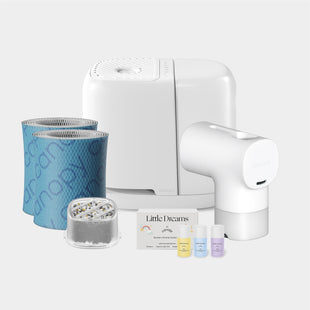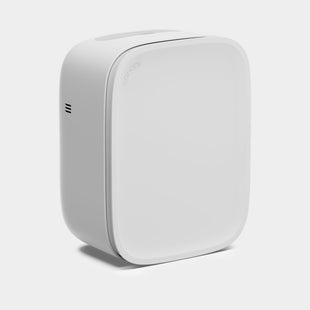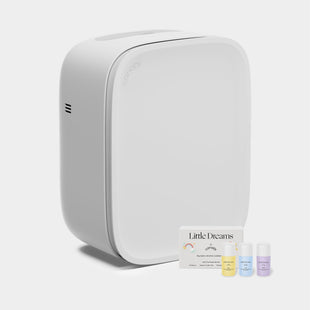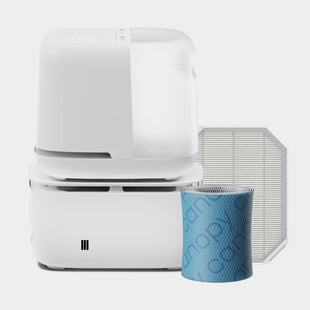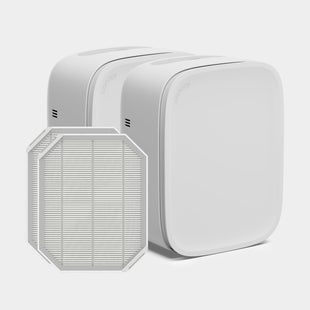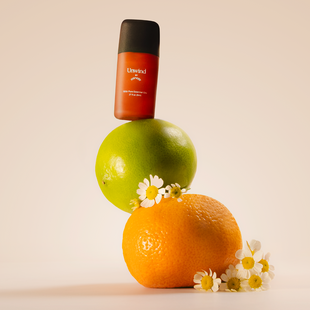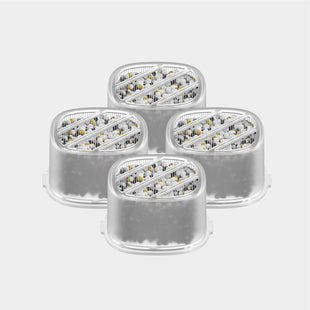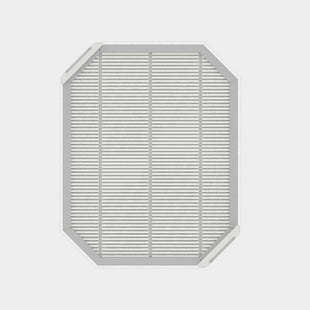Dry indoor air is a common problem in many homes. It tends to be especially prevalent in the winter, as warmer summer air holds more moisture than cooler air. Turning up the heat will make your home feel warmer, but it won’t add any moisture to the air. Since humidity levels are so low, what little moisture is around gets sucked up quickly into the air, and you’re more likely to feel the physical effects of low humidity. The good news is that there’s a simple solution.
Does a Humidifier Help with Dry Air?
Ideally, your home’s humidity level should be somewhere between 40% and 50%, depending on your personal preference. Within this range, you’ll be able to reduce some of the effects that come with dry air, such as respiratory ailments and dry skin. Unfortunately, many homes see indoor humidity levels as low as 25% during the winter months.
There are several things you can do to combat dryness in your home. Adding houseplants and insulating your home to prevent cold air from entering are a few tactics to try. If you’re seeking the simplest and most effective way to restore moisture in your home, using a humidifier is your best option.
Humidifiers add moisture to dry air by dispersing water from a tank throughout the space. A cool mist humidifier can either be ultrasonic or evaporative. In an ultrasonic humidifier, microdroplets are released into the air in a mist. With an evaporative humidifier, the air is drawn in and the water is dispersed by a fan. On the other hand, warm mist humidifiers (also known as vaporizers) heat water to its boiling point and then release it as a vapor, which can raise the temperature of the room.
Which Humidifier Is Best for Dry Air?

While both cool and warm humidifiers can add moisture to the air, there are some factors to consider when determining which humidifier is best for dry air.
All humidifiers should always be kept out of reach of pets and children because they use electricity. When seeking a humidifier for a baby’s room, you’ll want to go with a cool mist humidifier specifically. Since warm mist humidifiers feature boiling water, these devices could be especially hazardous if tipped over.
Cool mist humidifiers won’t add heat to a room, so they’re ideal for year-round use. Evaporative humidifiers are also less likely to create mold or mildew since they don’t lead to over-condensation on floors or surfaces, as the fan propels water instead of allowing it to settle.
The Canopy Humidifier is especially well-suited for dry air because it uses a no-mist technology free from bacteria and particles. It also has a unique, mold-inhibiting* design inside the humidifier for healthy hydration.
Benefits of Using a Humidifier for Dry Air
1. Reduces Respiratory Symptoms
Cold, dry air can worsen symptoms associated with allergies, asthma, bronchitis, and other respiratory ailments. This is because the fluid that hydrates the bronchial tubes tends to evaporate quickly in especially dry conditions. As a result, people with asthma and allergies may experience more persistent irritation in the winter months—but a humidifier can alleviate these issues. Symptoms of bronchitis and sinusitis may also be reduced with a humidifier.
Even if no one in your household has a chronic respiratory illness, it’s common for people to develop congestion, nosebleeds, and other uncomfortable nasal symptoms in the winter. Maintaining proper moisture can offset these symptoms.
Running a humidifier can also keep your nasal passages and respiratory tract well-lubricated. Since the mucus in these areas captures germs, it’s important to keep them hydrated to reduce your risk of cold and flu viruses, as well as other illnesses.
2. Helps Address Skin Irritation
Dry indoor environments are more likely to cause rough, dry skin. People with eczema may experience more frequent or intense flare-ups, and dry air could also worsen existing issues, like atopic dermatitis. Additionally, dry air weakens the skin’s barrier function, leaving you more susceptible to damage when you encounter allergens or other irritants. These issues can be especially concerning for babies, who tend to have sensitive skin.
Both the lower temperature and the lower humidity levels affect your skin in the winter. The rate at which water evaporates from the skin, a process known as transepidermal water loss (TWEL) accelerates in the winter months. Even if you don’t experience skin issues regularly, you may have dry, itchy skin in the winter. Fortunately, running a humidifier to keep your home’s moisture levels between 40% and 50% will help to naturally replenish your skin’s moisture, reducing dryness and the irritation that comes with it.
3. Decreases Static
Static can have you feeling a zap as you touch a door handle or seeing your hair stand on end as you try to comb it. While these are mostly minor annoyances, they can become tiresome throughout the long winter months. A humidifier prevents these issues since static electricity dissipates naturally when the air has ample humidity.
Whether you’re shopping for your baby’s room or looking to create a soothing at-home sanctuary, Canopy’s humidifiers can help you maintain optimal moisture levels with clean, refreshing hydration.
*Mold inhibition limited to device interior. Does not treat air or environment. 3rd party lab-tested with Aspergillus niger (ATCC 6275, 16404).









